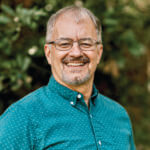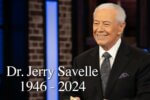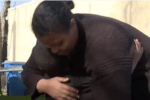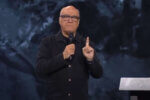“We did not honor men for their advantages”. Frank Bartleman
To compile this commemorative issue of Charisma, my staff combed through lots of 100-year-old articles, archival photographs and yellowed newspapers. We wanted to grasp what life was like in 1906 when the Azusa Street Revival hit Los Angeles, but I found myself wishing that I could interview the actual people involved. I especially would have liked to interview Frank Bartleman, the journalist-turned-preacher who wrote some of the most detailed, insightful accounts of this amazing movement of God.
I couldn’t talk with him. But if time travel were an option, the conversation would probably sound much like this.
Charisma: Now that you have spent a few days in the 21st century, what surprises you most about our culture?
Frank Bartleman: I am speechless. I can’t believe people talk on telephones while they drive cars. And I can’t believe people pay $3.99 for a cup of coffee. What is this place—Starbucks? Americans seem too busy. They don’t have time for prayer.
Charisma: Now that you have visited some of our megachurches and watched our Christian television programs, what do you think about the state of Christianity today?
Bartleman: (There is an awkward pause while he fidgets with his hat. He says nothing.)
Charisma: We can come back to that question. Meanwhile, tell us what it was like in the Asuza Street prayer meetings.
Bartleman: (He regains some composure.) The services ran almost continuously. Seeking souls could be found under the power almost any hour of the night or day. The place was never closed or empty. The people came to meet God.
The meeting did not depend on the human leader. In that old building, with its low rafters and bare floors, God broke strong men and women to pieces, and put them together again, for His glory. It was a tremendous overhauling process. Pride and self-assertion, self-importance and self-esteem could not survive there.
Charisma: That is quite a contrast with what we see in our churches today. In 2006 we like our preachers to be celebrities.
Bartleman: (There is another long pause.) We did not even have a platform or pulpit in the beginning. All were on the same level. The ministers were servants, according to the true meaning of the word. We did not honor men for their advantage in means or education, but rather for their God-given gifts.
Charisma: American Christianity today is big. We like big. We are reaching millions with our television programs, our Web sites and huge churches. Some of our churches today have more than 25,000 members. Doesn’t that excite you?
Bartleman: (He strokes his beard and fidgets with his hat again. No answer.)
Charisma: This is awkward. I’m not enjoying this interview.
Bartleman: At Azusa Street, the rich and educated were the same as the poor and ignorant, and found a much harder death to die. We only recognized God. All were equal.
Charisma: How did you end up at the Azusa Mission?
Bartleman: I moved to Los Angeles in 1904 because I sensed God was getting ready to do something wonderful there. Evan Roberts, leader of the 1904 Welsh Revival, encouraged me to pray for a mighty awakening in California.
Charisma: Why did God choose William Seymour to lead the Azusa Street Revival?
Bartleman: He was very plain, spiritual and humble. There was a general spirit of humility manifested in the meeting. Evidently the Lord had found the little company at last through whom He could have right of way. That which man esteems had been passed by once more and the Spirit was born again in a humble stable. The time had come.
Charisma: So we need more humility and prayer today?
Bartleman: The prayer life is needed much more than even buildings or organizations. These are often a substitute for the other. Souls are born into the kingdom only through prayer.
J. Lee Grady is editor of Charisma. Most of the words of Frank Bartleman (1871-1936) used in this column are taken from his writings, including “How Pentecost Come to Los Angeles”, which was published in 1925.
J. Lee Grady is an author, award-winning journalist and ordained minister. He served as a news writer and magazine editor for many years before launching into full-time ministry.
Lee is the author of six books, including 10 Lies the Church Tells Women, 10 Lies Men Believe and Fearless Daughters of the Bible. His years at Charisma magazine also gave him a unique perspective of the Spirit-filled church and led him to write The Holy Spirit Is Not for Sale and Set My Heart on Fire, which is a Bible study on the work of the Holy Spirit.






Leave a Comment
You must be logged in to post a comment.